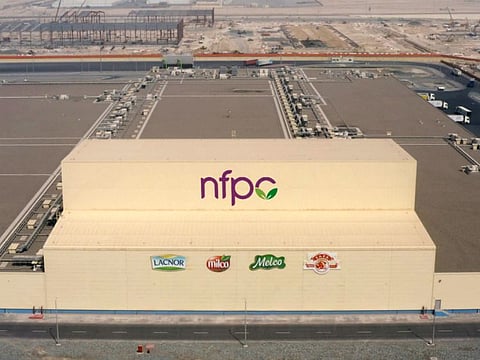How E80 Group and NFPC achieved digitalisation and all-round process integration
Two companies have developed together a perfect example of a sustainable smart factory

“Today, we cannot compromise anymore on reliability and repeatability, total traceability and safety; we cannot make mistakes, errors, damages and accidents and wait until the end of the day or the end of the shift to measure business performance,” says Andrea DelGrosso, Executive Vice President of Sales and Strategy, E80 Group, and Chief Executive Officer of E80 GMEA. “We must know everything upfront. The only way to fulfil this need is to have a fully automated and integrated factory, where the software plays a leading role and employees use their minds more than their arms.”
In 2016, a 752,000-sq-m mega plant was erected in Abu Dhabi to house one of the biggest factories in milk, juice and water products that soon became a state-of-the-art example of innovation and software integration: National Food Products Company. NFPC is one of the premier food and beverage manufacturers and distributors in the Middle East with a strong market share.
How did NFPC and E80 Group work together to build a flagship F&B production?
“In 2015, NFPC involved E80 Group to study the possibility of building a mega plant, where new manufacturing lines and existing equipment coming from other factories of the company could work together in a sustainable and extremely safe environment,” explains Andrea DelGrosso.
E80 Group, an Italian multinational specialised in the development of automated and integrated solutions for manufacturers and distributors, took care of the entire intralogistics of the factory, coordinating and synchronising all flows through SM.I.LE80, the E80 smart integrated logistics software platform. As the brain of the whole plant, SM.I.LE80 schedules the production, manages the warehouse and assigns missions to the 46 LGVs, or Laser Guided Vehicles , powered by lithium-ion batteries to handle pallets within the facility, from raw and packaging materials — film, glue, paper reels and preform — to loading of finished goods on trucks.
One of the NFPC main requirements, as well as one of E80 Group pillars, is guaranteeing maximum safety and product integrity along the entire supply chain. A perfect example is the E80 empty pallet inspection system, which makes sure that only pallets complying with the customer's requirements enter in the production flow.
Why is this system so important?
Andrea DelGrosso explains: “Try to imagine a broken pallet at the palletizer infeed: what happens? The palletizer stops and most probably the line stops too. You lose efficiency and you lose production. If you are lucky, you don’t stop the business as you still have your warehouse used as a buffer; but what happens when a broken pallet jams or falls down from a 20-40m-high high-bay warehouse? You stop the warehouse, you are no longer able to ship and you stop your business. This is why when we supply a fully automated warehouse, we cannot afford to introduce into the factory pallets not suitable for these operations.”
When the empty pallets are compliant, E80 LGVs bring them to the 10 robotic palletizer islands that handle different sizes and containers of UHT milk, juices and yoghurt coming from the 37 production lines of the plant. Once ready, the pallets are collected again by the LGVs, which continue the journey to the stretch wrapping machines and robotic labeller. Representing a key factor for the sustainability KPIs, E80 technologies offer NFPC a 30 per cent reduction in film usage.
From here, the finished goods pallets enter the E80 SmartStore. According to SM.I.LE80 shipping rules, this high-bay automated warehouse places the pallet in the assigned space via lithium-ion batteries satellites.
What has just been described is the flawless combination between innovative technologies and digitalisation. NFPC’s mega plant is the perfect example of how predicting, by analysing data in real time, and adapting is the way to deal with future market changes and the speed of transformation.
This content comes from Reach by Gulf News, which is the branded content team of GN Media.